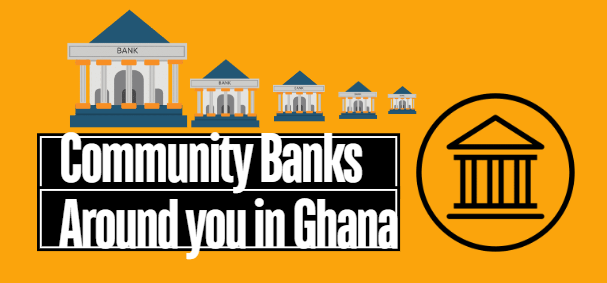
Community Banks in the United States
Community banks play a vital role in the American financial landscape. They are typically smaller institutions that focus on serving local communities, providing personalized banking services, and fostering economic development. Unlike larger national banks, community banks prioritize relationships with their customers and often have a deep understanding of the local market dynamics. This article will explore examples of community banks across the United States, highlighting their significance and contributions to their respective communities.
What Are Community Banks?
The mission, size, and organizational structure of community banks identify them. Locally owned and run businesses with assets under $10 billion are often classified as such. Serving residents in their local region and small companies is their main priority. By using a localized strategy, they can provide customized financial products that cater to the individual needs of their clients.
The Federal Deposit Insurance Corporation (FDIC) defines community banks as those that primarily serve local markets and engage in traditional banking activities such as accepting deposits, making loans, and providing basic financial services. They often emphasize customer service and community involvement over profit maximization.
Examples of Community Banks in the United States
1. First National Bank of Omaha (FNBO)
One of the biggest privately held banks in the country is First National Bank of Omaha, which was founded in 1857. FNBO is a multistate company that services clients while adhering closely to its local origins. Its headquarters are located in Omaha, Nebraska. In addition to providing corporate and personal banking, the bank also provides financial services, mortgage loans, and investment management.
FNBO is well-known for its community involvement programs, which include funding nearby charitable organizations and endorsing occasions that advance regional and local economic growth in Nebraska and its vicinity. It has won several awards for excellence in banking because of its commitment to providing excellent client service.
2. Bank of America’s Community Banking Division
Even though Bank of America is one of the biggest national banks in the country, it also runs a community banking section with a rather vast branch network, to serve local markets. This section offers individualized services that are designed to satisfy the requirements of both individual clients and small enterprises.
Bank of America’s community banking efforts include initiatives aimed at improving financial literacy among underserved populations and supporting small business growth through specialized loan programs. Their commitment to social responsibility aligns with many principles found within traditional community banking.
3. Citizens Bank
Another community-focused organization that has expanded considerably over the years without sacrificing its dedication to providing local service is Citizens Bank, which has its headquarters in Providence, Rhode Island. Citizens Bank offers a range of products, including checking and savings accounts, mortgages, vehicle loans, and financing for small businesses. The bank has locations across New England and parts of the Midwest.
Citizens Bank plays a proactive role in community development by investing in affordable housing projects and supporting local nonprofits through grants and employee volunteer efforts. Their commitment to sustainability demonstrates a deep awareness of the broader social issues impacting their communities. By integrating these initiatives into its business model, Citizens Bank underscores its dedication to fostering positive change and enhancing the quality of life in the areas it serves.
4. Independent Bank
Independent Bank, based in Michigan with additional branches throughout Texas, exemplifies how community banks can adapt to regional needs while maintaining strong ties to their origins. Founded in 1864 as a state-chartered bank in Michigan’s rural areas, Independent Bank has expanded its footprint but continues to prioritize customer relationships.
The bank offers comprehensive personal banking services alongside commercial lending solutions designed specifically for small businesses. Independent Bank’s commitment to enhancing local economies is evident through its support for educational programs and workforce development initiatives.
5. Washington Trust Bank
Founded in 1902, Washington Trust Bank is one of the oldest community banks operating exclusively within Washington State. Headquartered in Spokane Valley, this bank emphasizes personalized service with an array of offerings including personal checking accounts, home loans, and investment management services for individuals or families looking for wealth management solutions.
Washington Trust takes pride not only in its financial products but also engages actively with local organizations focused on education improvement or healthcare access—demonstrating how deeply rooted it is within its communities’ fabric.
The Importance of Community Banks
Community banks like those mentioned above contribute significantly to both economic stability and growth at a grassroots level:
- Local Economic Development: By focusing on lending to small businesses rather than large corporations or real estate developers alone; these institutions help create jobs locally.
- Personalized Service: Customers often receive more tailored advice from bankers who understand regional challenges better than representatives from larger institutions might.
- Financial Inclusion: Many community banks prioritize serving underbanked populations by offering accessible products without excessive fees or barriers.
- Community Engagement: Through sponsorships or partnerships with non-profits; these institutions foster civic engagement which leads directly back to strengthening neighborhoods economically & socially.
- Resilience During Crises: Historically during economic downturns; smaller lenders have shown resilience compared to larger counterparts largely because they maintain close ties with clients enabling them better insights into potential risks ahead thus allowing proactive measures taken before crises escalate further damaging economies overall.
Community Banks in the United States represent an essential segment within America’s broader financial ecosystem—serving not just as lenders but also as partners committed to uplifting entire communities through sustainable practices grounded firmly upon trust-based relationships built over generations past present future alike!


